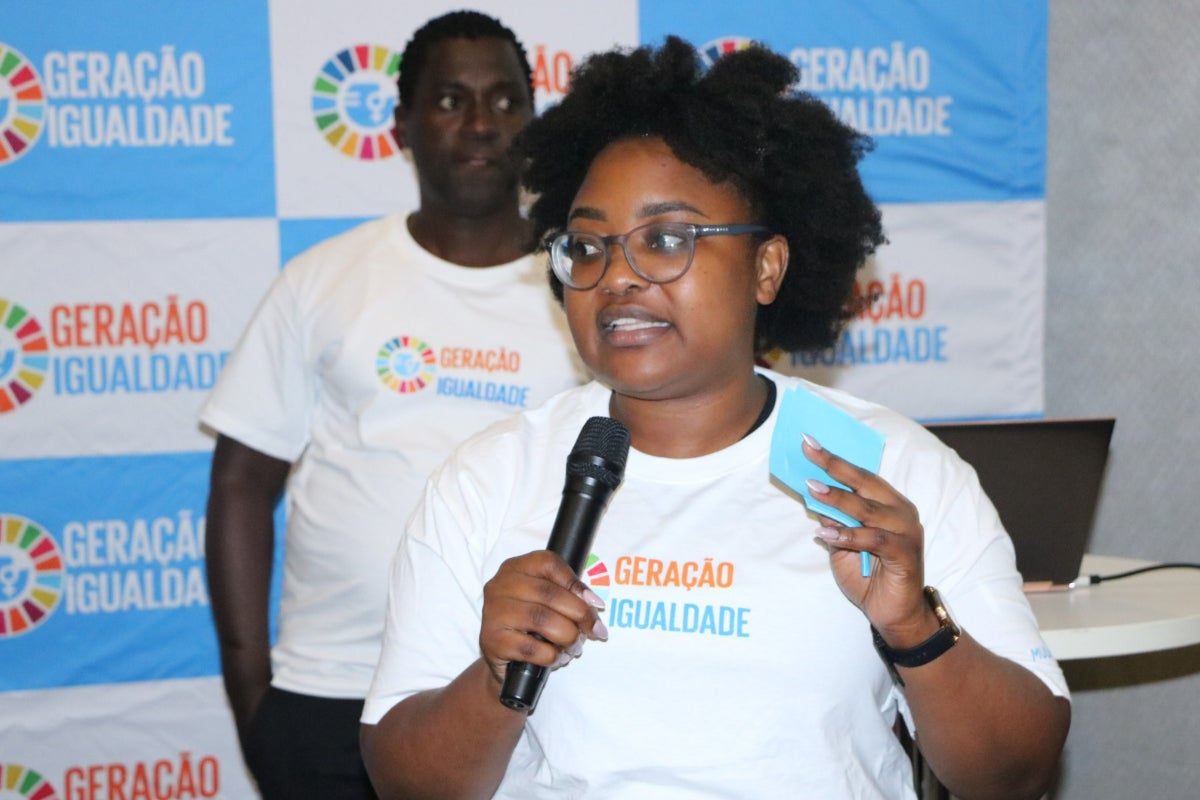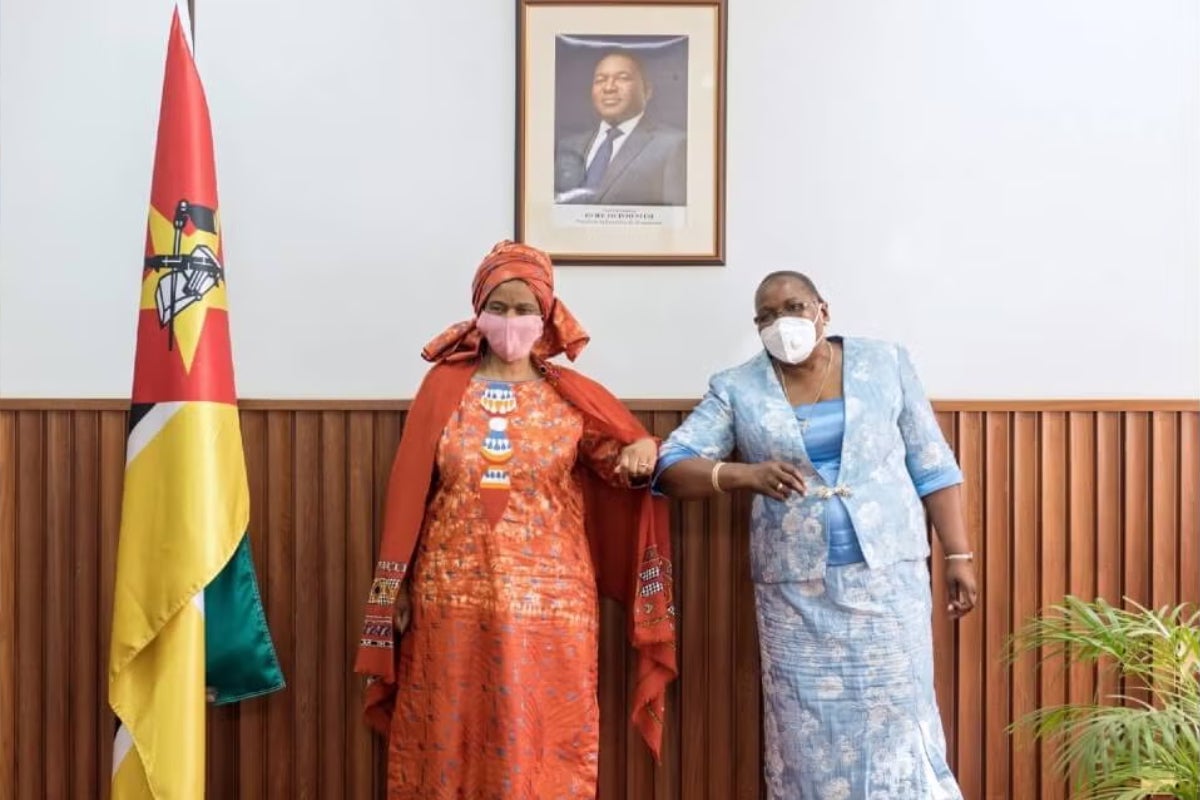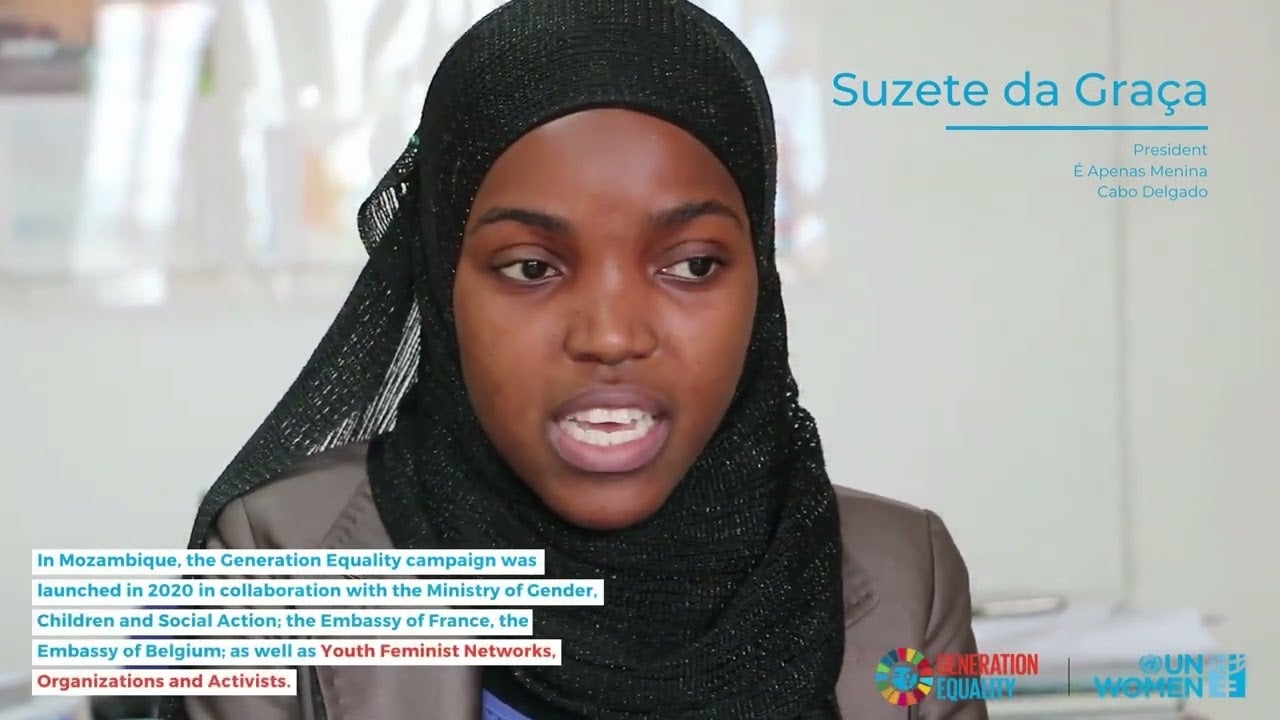Generation Equality in Mozambique

In Mozambique, the Generation Equality campaign was launched in 2020 through collaboration between the Ministry of Gender and Social Action, the Embassies of France and Belgium, the youth feminist network organization, and activists. The campaign is implemented through various government-led initiatives and programs by commitment makers, aiming to foster gender equality and improve the lives of women and girls. Promoting gender equality is a major government priority, recognizing women's active participation across sectors as essential for sustainable development.
UN Women Mozambique has played a key role in advancing the campaign by engaging in high-level advocacy with the government to influence decisions and accelerate progress on gender equality. In May 2021, UN Women Under Secretary and Executive Director Phumzile Mlambo-Ngcuka visited Mozambique, meeting with the Minister of Foreign Affairs and Cooperation, Veronica Nataniel Macamo Dlhovo, and the Minister of Gender, Children and Social Action, Nyelete Mondlane Brooke. These meetings addressed achievements and challenges related to gender equality and women’s empowerment. The Ministry’s efforts in promoting the campaign were acknowledged, and support was requested to reinforce Mozambique’s commitments ahead of the Generation Equality Forum in Paris. Subsequently, Mozambique, through the Ministry of Gender, Children and Social Action, reaffirmed its commitment to Generation Equality during the Mexico and Paris Forums in 2021.

As a Commitment Maker in the Action Coalitions on Gender-Based Violence and Economic Justice and Rights, the government seeks to eliminate workplace violence and harassment and tackle unpaid care work. UN Women also hosted a consultative meeting with twenty youth representatives from organizations across the country to assess progress and gather input for further implementation of the action coalitions. Feminist action for climate justice emerged as a key area where both youth and government have made notable commitments.
In support of youth leadership, UN Women facilitated three consultative meetings on the development of a National Youth Strategy, two held online at the provincial level and one in Maputo with 12 youth leaders from each province and over 100 youth organization stakeholders. This collaborative process led to the completion of the strategy, which is pending presentation to government stakeholders.
UN Women continues to amplify youth voices, ensuring their priorities inform gender equality initiatives. Women’s leadership in humanitarian response and peacebuilding remains a central focus, especially amid ongoing humanitarian crises that expose women and girls to heightened vulnerabilities. Women’s associations and civil society leaders are calling for legal protections and increased representation in decision-making bodies. Peacebuilding efforts by the government now increasingly incorporate gender perspectives to address the unique challenges faced by women in conflict situations.
The Government of Mozambique reaffirmed the country’s commitment to accelerating gender equality through Generation Equality Action Coalitions and officially presented their defense and programmatic commitment to accelerate action coalitions on Gender-based violence, Economic rights and justice, and on Body autonomy and Sexual Reproductive Health Rights.
The Ministry of Labor, Gender and Social Action continues to coordinate and implement policies for gender, children, and social action, aligning with broader national strategies and the commitments of the Generation Equality campaign.
Commitment Makers
Mozambique's Commitment Makers Include the government of Mozambique and the Women, Law, and Development Association (MULEIDE). MULEDE has been instrumental in driving legal frameworks that address gender-based violence (GBV) and discrimination. Key legal frameworks include the Family Law, the Law on the Prevention of Premature Unions, the Law on the Prevention of Women and Girls Trafficking, the Land Law, and the Law on Preventing Discrimination Against People Living with HIV at Work.
Under AC on Bodily Autonomy & SRHR, MULEIDE’s programs focus on advocating for sexual and reproductive health and rights (SRHR), mobilizing vulnerable communities to overcome barriers and build healthier futures. Their commitments include expanding access to safe abortion, advocating for women's rights to family planning, providing HIV treatment for women with care options at home or in health facilities, offering home-based care for women in terminal conditions, and ensuring access to birth control options while advocating for reproductive autonomy.
Videos

